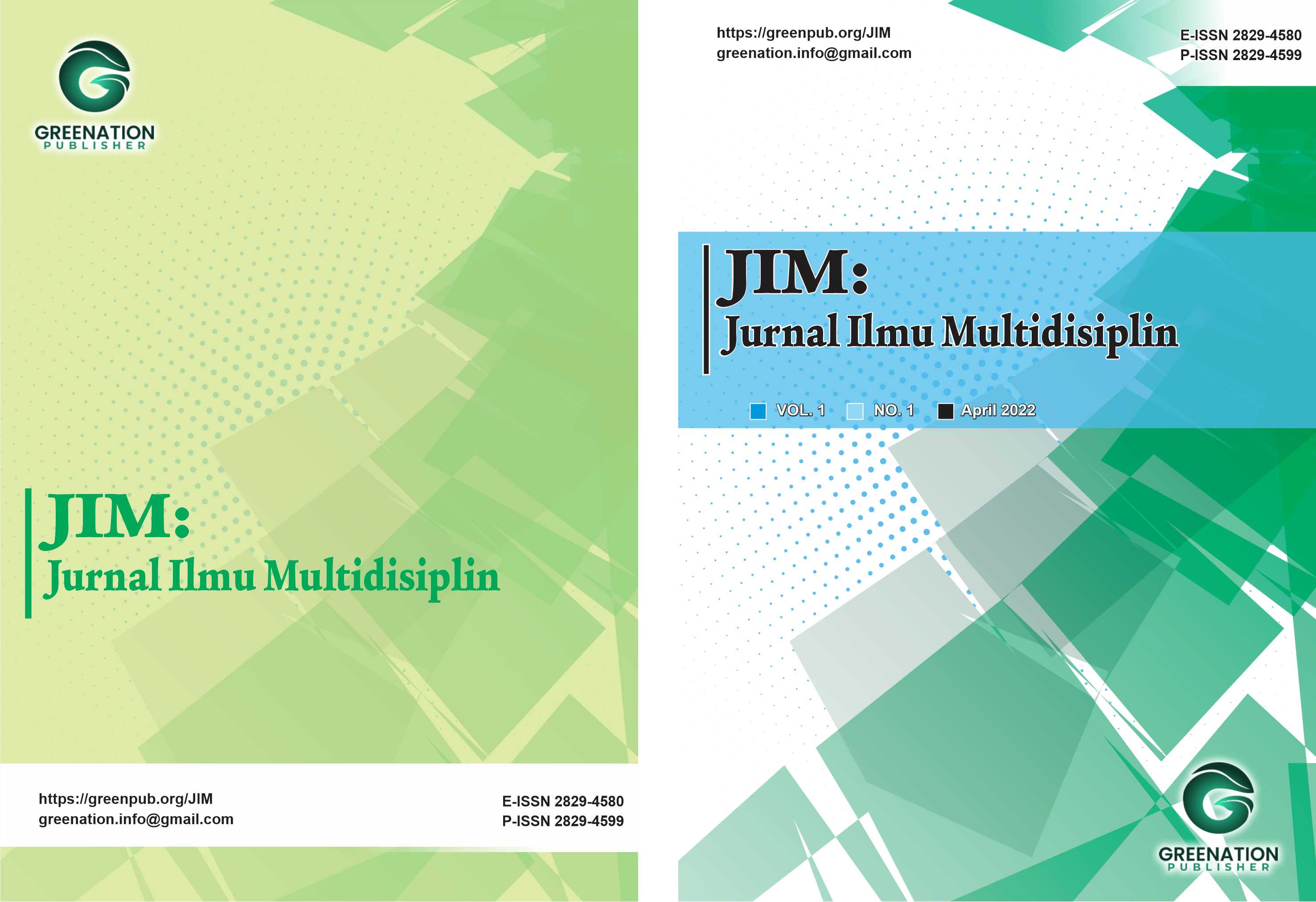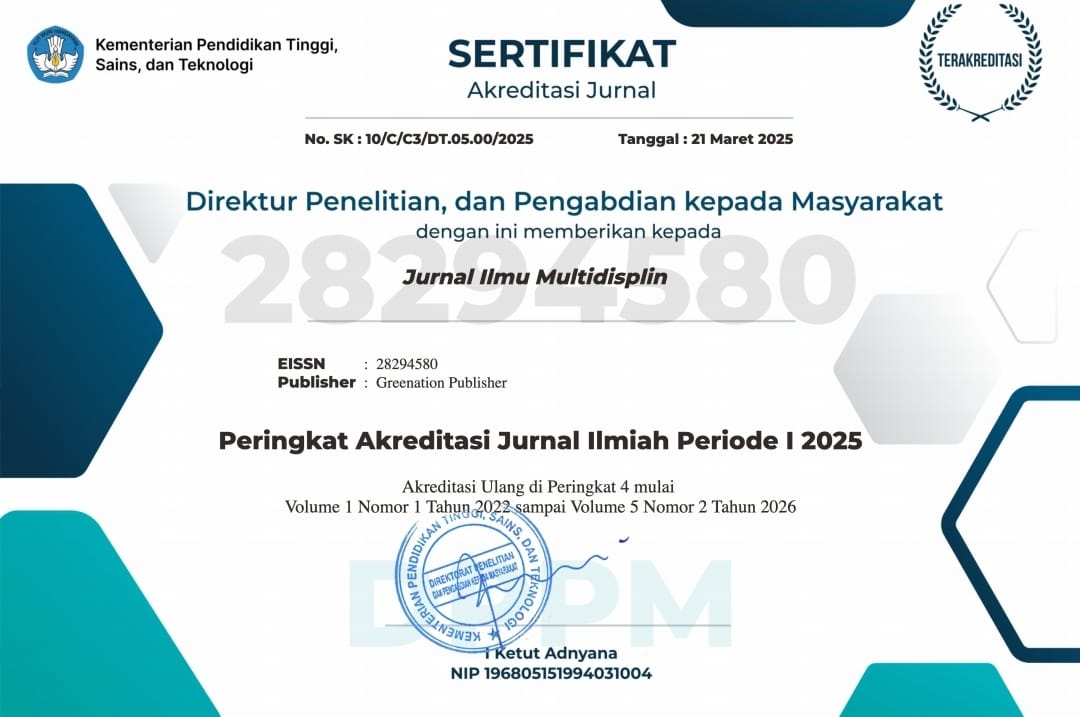Authentic Happiness pada Mahasiswa Penerima Beasiswa
DOI:
https://doi.org/10.38035/jim.v4i2.918Keywords:
Kebahagiaan sejati, Mahasiswa, BeasiswaAbstract
Mahasiswa penerima beasiswa seringkali dihadapkan pada beban akademik dan non-akademik yang lebih berat dibandingkan mahasiswa reguler. Studi fenomenologi ini mengeksplorasi empat mahasiswa penerima beasiswa mengalami kebahagiaan autentik. Dalam penelitian ini, penulis mengkaji pengalaman authentic happiness yang menurut Seligman terdiri atas positive emotion, engagement, dan meaning pada empat mahasiswa penerima beasiswa aktif yang dipilih melalui purposive sampling. Data dikumpulkan melalui wawancara semi-terstruktur dan observasi non-partisipatif, lalu dianalisis secara deskriptif-interpretatif untuk mengungkapkan makna subjektif kebahagiaan mereka. Penelitian menunjukkan bahwa dukungan finansial tidak hanya mereduksi stres, tetapi juga mendorong kepuasan, rasa syukur, dan optimisme serta keterlibatan mendalam (flow) dalam aktivitas akademik, non-akademik, dan sosial, serta tujuan hidup yang berakar dari kontribusi mereka.
References
Afifah, N., Paryontri, R. A., & Fahmawati, Z. N. (2024). Organizational activity and students’ learning motivation relationship to academic achievement in teaching secondary schools. Umsida, 1–12. https://doi.org/https://doi.org/10.21070/ups.4904
Al Musafiri, M. R., & Umroh, N. M. (2022). Hubungan optimisme tehadap resiliensi pada mahasiswa tingkat akhir yang mengerjakan skripsi. Jurnal At-Taujih, 2(2), 70. https://doi.org/10.30739/jbkid.v2i2.1726
Arif, I. S. (2016). Psikologi positif: pendekatan saintifik menuju kebahagiaan. PT Gramedia Pustaka Utama.
Ariska, D., Situmorang, N. Z., Hanif, M., & Sulistiawan, A. (2020). Makna kebahagiaan pada mahasiswa perempuan di era millennials. Psikoislamedia?: Jurnal Psikologi, 5(1), 66. https://doi.org/10.22373/psikoislamedia.v5i1.6290
Ayuni, R., & Oktavia, E. (2022). Analisis motivasi belajar mahasiswa penerima beasiswa di program studi pendidikan ekonomi FKIP universitas muhammadiyah bengkulu. Jurnal Multidisiplin Dehasen, 1(3), 279–284.
Aziza, N., & Shafa, A. U. (2016). Pengaruh emosi positif dalam pemilihan alternatif investasi modal?: perbandingan keputusan individu dan kelompok. Jurnal Riset Akuntansi Dan Auditing, 3(2), 15–43.
Boatman, A., & Long, B. T. (2016). Does financial aid impact college student engagement?: evidence from the Gates Millennium Scholars program. Research in Higher Education, 57(6), 653–681. https://doi.org/10.1007/s11162-015-9402-y
Clemente, M., & Hezomi, H. (2016). Stress and psychological well-being: an explanatory study of the Iranian female adolescents. Journal of Child and Adolescent Behaviour, 04(01), 1–5. https://doi.org/10.4172/2375-4494.1000282
Creswell, J. W., & Creswell, J. D. (2018). Research design qualitative, quantitative, and mixed methods approaches (fifth). SAGE Publication Inc.
Hadijah. (2016). Upaya mahasiswa penerima beasiswa bidikmisi dalam meningkatkan prestasi. Universitas Islam Negeri Ar-Raniry Banda Aceh.
Haryati, H. U. (2023). The effect of education on happiness, self-acceptance, and family harmony (empirical evidence from indonesia). The Journal of Indonesia Sustainable Development Planning, 4(1), 35–56. https://doi.org/10.46456/jisdep.v4i1.371
Hasanah, H. (2017). Teknik-teknik observasi. At-Taqaddum, 8(1), 21. https://doi.org/10.21580/at.v8i1.1163
Julistia, R., & Safuwan. (2020). Kebahagiaan ditinjau dari perilaku bersedekah?: suatu kajian psikologi islam. 3, 1–6.
Khairunnisa, S. (2014). Studi deskriptif orientasi kebahagiaan pada mahasiswa fakultas psikologi Universitas Padjadjaran. Pustaka Ilmiah Universitas Padjajaran. https://pustaka.unpad.ac.id/archives/137573
Liang, C., & Sun, J. (2022). A Study of the Happiness of Chinese University Students and Its Influencing Factors—A Case Study of Beijing Universities. Sustainability (Switzerland), 14(23), 1–15. https://doi.org/10.3390/su142316057
Lyubomirsky, S., Sheldon, K. M., & Schkade, D. (2005). Pursuing happiness?: the Architecture of sustainable change. 9(2), 111–131. https://doi.org/10.1037/1089-2680.9.2.111
Prastika, N. D. (2016). Emosi positif pada perawat di rumah sakit umum daerah Abdoel Wahab Sjahranie Samarinda. Seminar ASEAN 2nd Psychology & Humanity, 616–623.
Pratitis, N., Rina, A. P., Agustin, A. H., & Azizah, A. N. (2022). Kebahagiaan otentik pada anak jalanan ditinjau dari penerimaan diri dan dukungan sosial. BRILIANT: Jurnal Riset Dan Konseptual, 7(1), 8–21. https://doi.org/http://dx.doi.org/10.28926/briliant.v7i1.824
Riskasari, W. (2023). Authentic happiness of nun who have muslim parents. Psikis?: Jurnal Psikologi Islami, 9(1), 145–153. https://doi.org/10.19109/psikis.v9i1.17178
Rusdiana, I. (2017). Konsep authentic happiness pada remaja dalam perspektif teori myers. Ibriez?: Jurnal Kependidikan Dasar Islam Berbasis Sains, 2(1), 35–44. https://doi.org/10.21154/ibriez.v2i1.23
Russo-netzer, P., & Shoshani, A. (2020). Authentic inner compass, well-being, and prioritization of positivity and meaning among adolescents. Personality and Individual Differences, 167(110248), 1–6. https://doi.org/10.1016/j.paid.2020.110248
Seligman, M. (2002). Authentic happiness: Using the new positive psychology to realize your potential for lasting fulfillment. Simon and Schuster. https://books.google.co.id/books?id=3L0BCCoFMRgC&lpg=PR11&ots=_2vQabeFf7&dq=authentic happiness using the new positive&lr&hl=id&pg=PR11#v=onepage&q=authentic happiness using the new positive&f=false
Seligman, M. (2011). Flourish: a visionary new understanding of happiness and well-being. Free Press. https://doi.org/10.5860/choice.48-7217
Wibowo, A. E., & Mulawarman. (2022). Hubungan antara kebersyukuran dengan kesejahteraan psikologis pada mahasiswa penerima beasiswa di Universitas Negeri Semarang ( UNNES ). Indonesian Journal of Guidance and Counseling?: Theory and Application, 11(3), 1–12. https://doi.org/https://doi.org/10.15294/ijgc.v11i3.57306
Downloads
Published
How to Cite
Issue
Section
License
Copyright (c) 2025 Chaerani Astri Hasanah, Tinon Citraning Harisuci

This work is licensed under a Creative Commons Attribution 4.0 International License.
You are free to:
- Share— copy and redistribute the material in any medium or format
- Adapt— remix, transform, and build upon the material for any purpose, even commercially.
The licensor cannot revoke these freedoms as long as you follow the license terms.
Under the following terms:
- Attribution— You must give appropriate credit, provide a link to the license, and indicate if changes were made. You may do so in any reasonable manner, but not in any way that suggests the licensor endorses you or your use.
- No additional restrictions— You may not apply legal terms or technological measures that legally restrict others from doing anything the license permits.
Notices:
- You do not have to comply with the license for elements of the material in the public domain or where your use is permitted by an applicable exception or limitation.
- No warranties are given. The license may not give you all of the permissions necessary for your intended use. For example, other rights such as publicity, privacy, or moral rightsmay limit how you use the material.



























